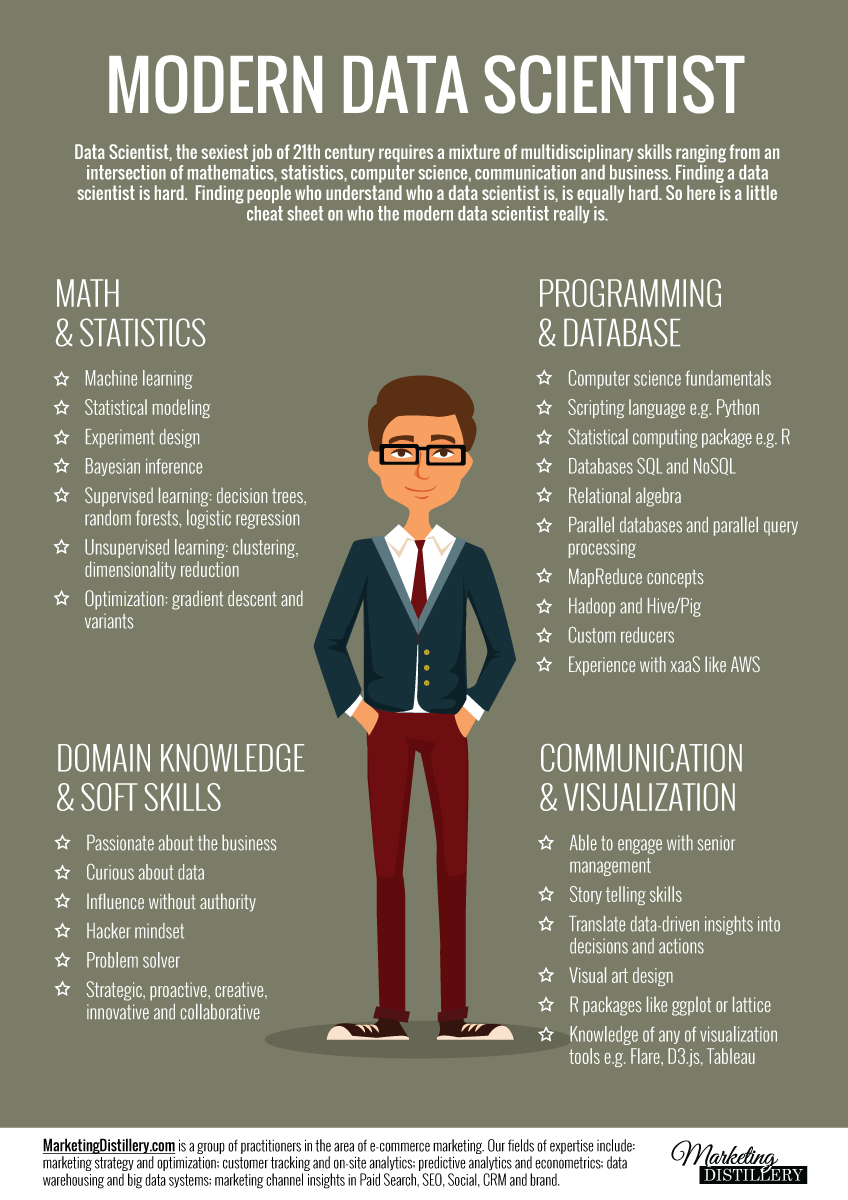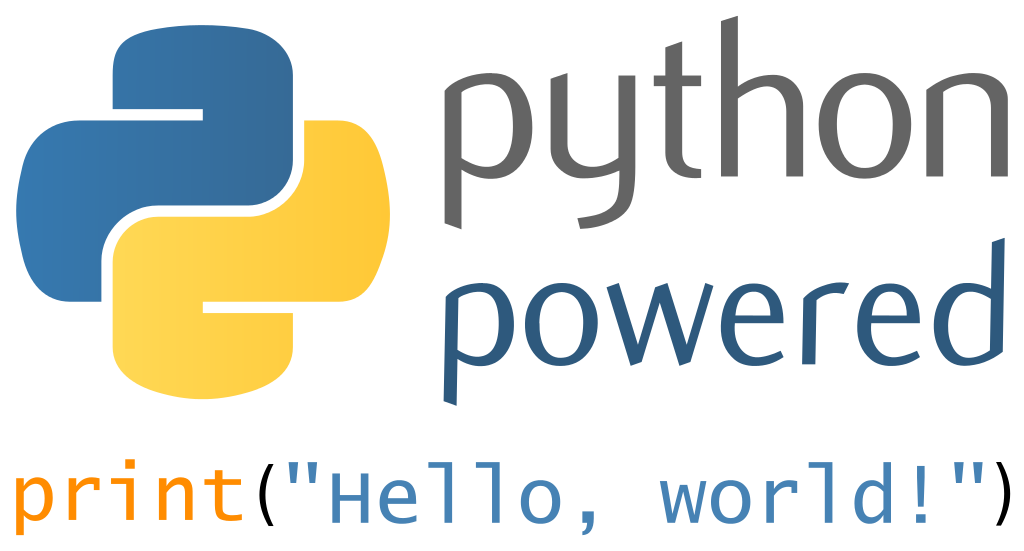By Tomas Kasza Unless you have been living under a rock, you have probably heard of the job title, data scientist. Heralded as one of the new, hot jobs of the 21st century, it has made its way to several top ten jobs lists across the news (1, 2, and 3). You may have thought you missed out on this opportunity, however I have some great news for you! A data scientist can receive training at any level of college or post-college education, and there are even specific jobs within data science that an individual with a Ph.D. is more suited for. This post will answer some questions that you may have about being a data scientist. What exactly is a data scientist? Data scientists extract meaning from data. They interpret and communicate this data by using a combination of statistics, programming, and presentation skills. Throughout history, scientists have collected and organized data in order to make predictions about the world. However, in modern times, there has been an explosion in the quantity of data generated due to advances in technology. As a result, individuals with data analysis skills are now in high demand. Do I need programming knowledge to be a data scientist? Yes, you will need to learn a programming language like python or Java and a data visualization language like R or SQL. A more complete list can be found here. R and Python are free to download on your computer from their online websites. Check out the graphic below for the skill traits of a complete data scientist! It is important to remember that these are powerful tools for interpreting and visualizing substantial amounts of data. As many of us are bench scientists, our current work involves observing changes in experimental systems and interpreting the results that are generated. Programming is the same in principle. Think of it as learning a new bench technique that will allow you to interpret data more easily!  Programming seems complicated—do you think I would be able to learn it? There is a cornucopia of online materials available to aspiring data scientists. Fortunately, most of these tools are free—you can just sign up for them and teach yourself. You can also obtain several Integrated Development Environments (IDEs) for each language, also available for free online. IDEs will help you learn, design, and debug code. For online learning, DataCamp tutorials are extremely helpful. You can also find some courses on Coursera and edX. These will help point you in the right direction for further learning. When you need help accomplishing a specific coding task, visit the developer forum, stack overflow. It is likely that another person has asked the same question, and someone else has already explained how to accomplish that task! What are the requirements for the career? As mentioned above, one specific requirement to be a data scientist is to know how to program in a data visualization language and a programming language. The number of resources available is daunting at first, but there are many online guides to let you forge a learning path for yourself. There are also classes you can take, such as boot camps, and degrees at Rutgers in order to show that you have the knowledge to succeed in data science. Personally, I have talked to my advisor about my interest in this field, and he has suggested taking several courses, beginning with linear algebra and research statistics.
Programming seems complicated—do you think I would be able to learn it? There is a cornucopia of online materials available to aspiring data scientists. Fortunately, most of these tools are free—you can just sign up for them and teach yourself. You can also obtain several Integrated Development Environments (IDEs) for each language, also available for free online. IDEs will help you learn, design, and debug code. For online learning, DataCamp tutorials are extremely helpful. You can also find some courses on Coursera and edX. These will help point you in the right direction for further learning. When you need help accomplishing a specific coding task, visit the developer forum, stack overflow. It is likely that another person has asked the same question, and someone else has already explained how to accomplish that task! What are the requirements for the career? As mentioned above, one specific requirement to be a data scientist is to know how to program in a data visualization language and a programming language. The number of resources available is daunting at first, but there are many online guides to let you forge a learning path for yourself. There are also classes you can take, such as boot camps, and degrees at Rutgers in order to show that you have the knowledge to succeed in data science. Personally, I have talked to my advisor about my interest in this field, and he has suggested taking several courses, beginning with linear algebra and research statistics.  Will a career in data science be a good fit for me? This is a question you will have to ask yourself. I think it is a great career transition for someone who loves understanding technical data interpretation. From my perspective, understanding data, asking questions about it, and learning even more, is one of the reasons why I got involved in science in the first place. It is a natural progression for me to pursue a career in this area because it is so similar to the scientific process that I already practice. I used to be apprehensive about learning programming, but I have found that once I learned some basics, it became much less daunting. I have also found that I enjoy learning about new techniques and technological advances within data science, which is important to do in any prospective career. I hope that you have enjoyed my review of data science, have obtained a better understanding of what a data scientist does, and find the links that I have provided to be helpful. I hope that you remember that data science can be a rewarding career for any Ph.D. student or postdoc! Edited by Sangeena Salam and Paulina Krzyszczyk
Will a career in data science be a good fit for me? This is a question you will have to ask yourself. I think it is a great career transition for someone who loves understanding technical data interpretation. From my perspective, understanding data, asking questions about it, and learning even more, is one of the reasons why I got involved in science in the first place. It is a natural progression for me to pursue a career in this area because it is so similar to the scientific process that I already practice. I used to be apprehensive about learning programming, but I have found that once I learned some basics, it became much less daunting. I have also found that I enjoy learning about new techniques and technological advances within data science, which is important to do in any prospective career. I hope that you have enjoyed my review of data science, have obtained a better understanding of what a data scientist does, and find the links that I have provided to be helpful. I hope that you remember that data science can be a rewarding career for any Ph.D. student or postdoc! Edited by Sangeena Salam and Paulina Krzyszczyk
iJOBS Blog